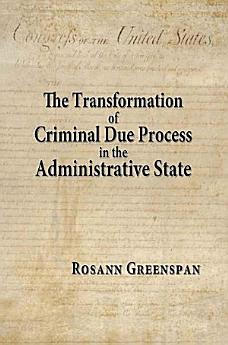The Transformation of Criminal Due Process in the Administrative State: The Targeted Urban Crime Narcotics Task Force
About this ebook
"I think it was my first day in the field that the police liaison to the district attorney's probation revocation program exclaimed, 'Forget rights! Forget right to jury! Forget right to bail! There are no rights!' As Malcolm Feeley says in his Foreword, what I 'discovered' over the course of researching and writing this study was in plain view from the beginning. The criminal process has largely been subsumed as an administrative process and the procedural rights enshrined in the Bill of Rights have long since faded away. What I hope my work explains is how this happened doctrinally -- how the expansion of criminal due process was halted and redirected by the very administrative due process revolution it gave birth to. And how it happened in practice -- how police, prosecutors, and corrections came to realize that they had the tools to bypass the criminal process in enforcing the criminal sanction."
In his new Foreword, Feeley describes the book as "a brilliant analysis of the criminal process" and explains why its relevance and theoretical power have increased over time. In a nation where legal rights and process became enhanced in criminal courts and formal processes of adjudication, Greenspan showed the bypassing of much of this framework by the substitution of parole revocation, probation, and the like -- by what Feeley summarizes as "the triumph of the administrative model. Her thesis shows how this occurred. The backlash to the Warren Court’s criminal due process revolutions was not a wholesale abandonment of rights, but an embrace of a lower standard of due process, administrative due process." Some of these changes are well known, of course, but "Greenspan's study is brilliant precisely because it problematizes these developments. It identifies the central issue, how thinking about the criminal process has been so fundamentally yet unwittingly transformed."
This book is a powerful look at these reforms and transformations, presented in the 'Classic Dissertation Series' by Quid Pro Books. Quality ebook formatting includes properly presented tables, active contents, and linked notes. A new paperback edition of this book is also available.
About the author
Rosann Greenspan has served as the Executive Director of the Center for the Study of Law and Society at the University of California, Berkeley, since 2005. She earned a B.A. from Yale College, an M.A. from the Centre of Criminology at the University of Toronto, and an M.A. and Ph.D. from Berkeley’s Jurisprudence & Social Policy Program. She was the Postdoctoral Fellow in Law and Politics at Stanford and a U.S. Supreme Court Fellow.




